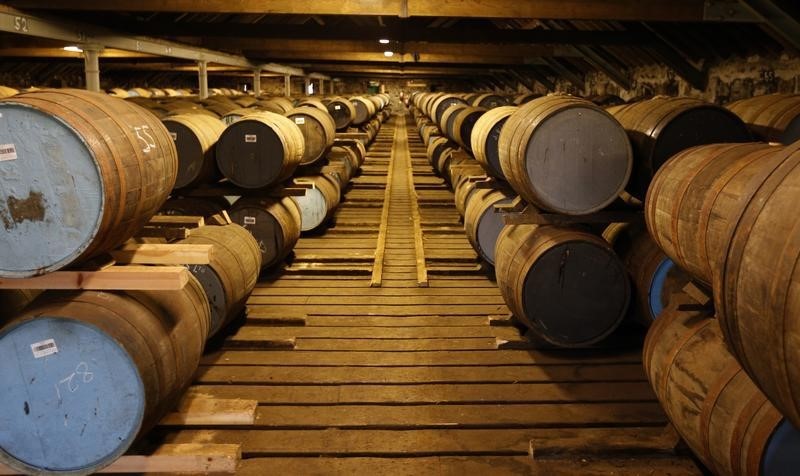(Bloomberg) -- U.S. tariffs that took effect on Friday on iconic European products including single-malt Scotch whisky have already prompted plenty of grumbling from American consumers. But the more important constituency watching what might yet turn into a 21st century Whiskey Rebellion is actually in Beijing.
President Donald Trump’s attack on some of European Union’s boozier exports is the result of a long-running fight over the industrial leg-up the U.S. and EU countries have given to Boeing (NYSE:BA) and Airbus over the years. In a world where dirigiste China’s vast web of corporate subsidies from cheap electricity to cheap capital are the target of concern on both sides of the Atlantic, a fight over their own subsidies undermines the ability to join forces.
The trans-Atlantic fight over aircraft subsidies, which led the World Trade Organization this month to authorize U.S. tariffs on $7.5 billion in imports from the EU, is therefore tied intricately to Trump’s prospects of someday extracting a far more meaningful set of economic reforms from President Xi Jinping than the mini deal he is now contemplating.
The EU over the past 10 days has again proposed talks with the U.S. to resolve their differences over the aircraft saga. It is pointing to the shared angst over China as the best reason for the two economic powers to cut a deal. Which seems sensible. Even Boeing (NYSE:BA) isn’t keen on the tariffs ostensibly being levied in its interest for fear they will lead to retribution and its aircraft being shut out of the European market.
So far the response from Robert Lighthizer, the U.S. trade representative, has been a shrug of the shoulders.
Lighthizer is busy wrapping up the first installment of the deal Trump is determined to close with China by mid-November. But U.S. officials are also skeptical of how real any EU commitment to end subsidies would be. For a start, people in Washington point to the billions in loans European governments extended to Airbus to develop the A380. With the jet’s demise, those taxpayer-backed loans are effectively being forgiven, which is seen as evidence of Europe’s lingering affection for state support.
There is one good reason to be optimistic. The EU and the U.S. — together with Japan — have for almost two years been working on draft rules for industrial subsidies that they hope someday to take into the WTO as a way to force change in China.
The Trump administration has never been overly enthusiastic. But people close to the talks say a text is being finalized. The big stumbling block: The need for a resolution to the Airbus-Boeing fight.
Which is why it’s worth tracking the price of single-malt Scotch in the U.S. — and Brexit could play a role. But if the new tariffs disappear (and prices go down) it will most likely be because of a bigger peace and a new alliance forming against China.
